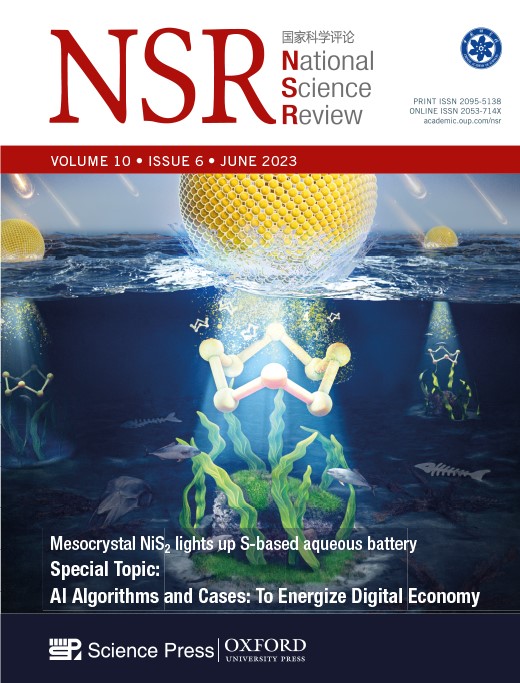Leapfrogging Sycamore: Harnessing 1432 GPUs for 7× faster quantum random circuit sampling
IF 16.3
1区 综合性期刊
Q1 MULTIDISCIPLINARY SCIENCES
引用次数: 0
Abstract
Random quantum circuit sampling serves as a benchmark to demonstrate quantum computational advantage. Recent progress in classical algorithms, especially those based on tensor network methods, has significantly reduced the classical simulation time and challenged the claim of the first-generation quantum advantage experiments. However, in terms of generating uncorrelated samples, time-to-solution, and energy consumption, previous classical simulation experiments still underperform the Sycamore processor. Here we report an energy-efficient classical simulation algorithm, using 1432 GPUs to simulate quantum random circuit sampling which generates uncorrelated samples with higher linear cross entropy score and is 7 times faster than the Sycamore 53 qubits experiment. We propose a post-processing algorithm to reduce the overall complexity, and integrate state-of-the-art high-performance general-purpose GPU to achieve two orders of lower energy consumption compared to previous works. Our work provides the first unambiguous experimental evidence to refute Sycamore’s claim of quantum advantage, and redefines the boundary of quantum computational advantage using random circuit sampling.跨越梧桐:利用 1432 个 GPU 实现 7 倍速量子随机电路采样
随机量子电路采样是证明量子计算优势的基准。经典算法的最新进展,尤其是基于张量网络方法的算法,大大缩短了经典模拟时间,对第一代量子优势实验的说法提出了挑战。然而,在生成不相关样本、求解时间和能耗方面,以前的经典模拟实验仍然不如 Sycamore 处理器。在这里,我们报告了一种高能效的经典模拟算法,使用 1432 GPU 模拟量子随机电路采样,该算法生成的非相关样本具有更高的线性交叉熵分,比 Sycamore 53 量子实验快 7 倍。我们提出了一种后处理算法来降低整体复杂性,并集成了最先进的高性能通用 GPU,从而实现了比以往工作低两个数量级的能耗。我们的工作首次提供了明确的实验证据,驳斥了 Sycamore 声称的量子优势,并利用随机电路采样重新定义了量子计算优势的边界。
本文章由计算机程序翻译,如有差异,请以英文原文为准。
求助全文
约1分钟内获得全文
求助全文
来源期刊

National Science Review
MULTIDISCIPLINARY SCIENCES-
CiteScore
24.10
自引率
1.90%
发文量
249
审稿时长
13 weeks
期刊介绍:
National Science Review (NSR; ISSN abbreviation: Natl. Sci. Rev.) is an English-language peer-reviewed multidisciplinary open-access scientific journal published by Oxford University Press under the auspices of the Chinese Academy of Sciences.According to Journal Citation Reports, its 2021 impact factor was 23.178.
National Science Review publishes both review articles and perspectives as well as original research in the form of brief communications and research articles.
 求助内容:
求助内容: 应助结果提醒方式:
应助结果提醒方式:


